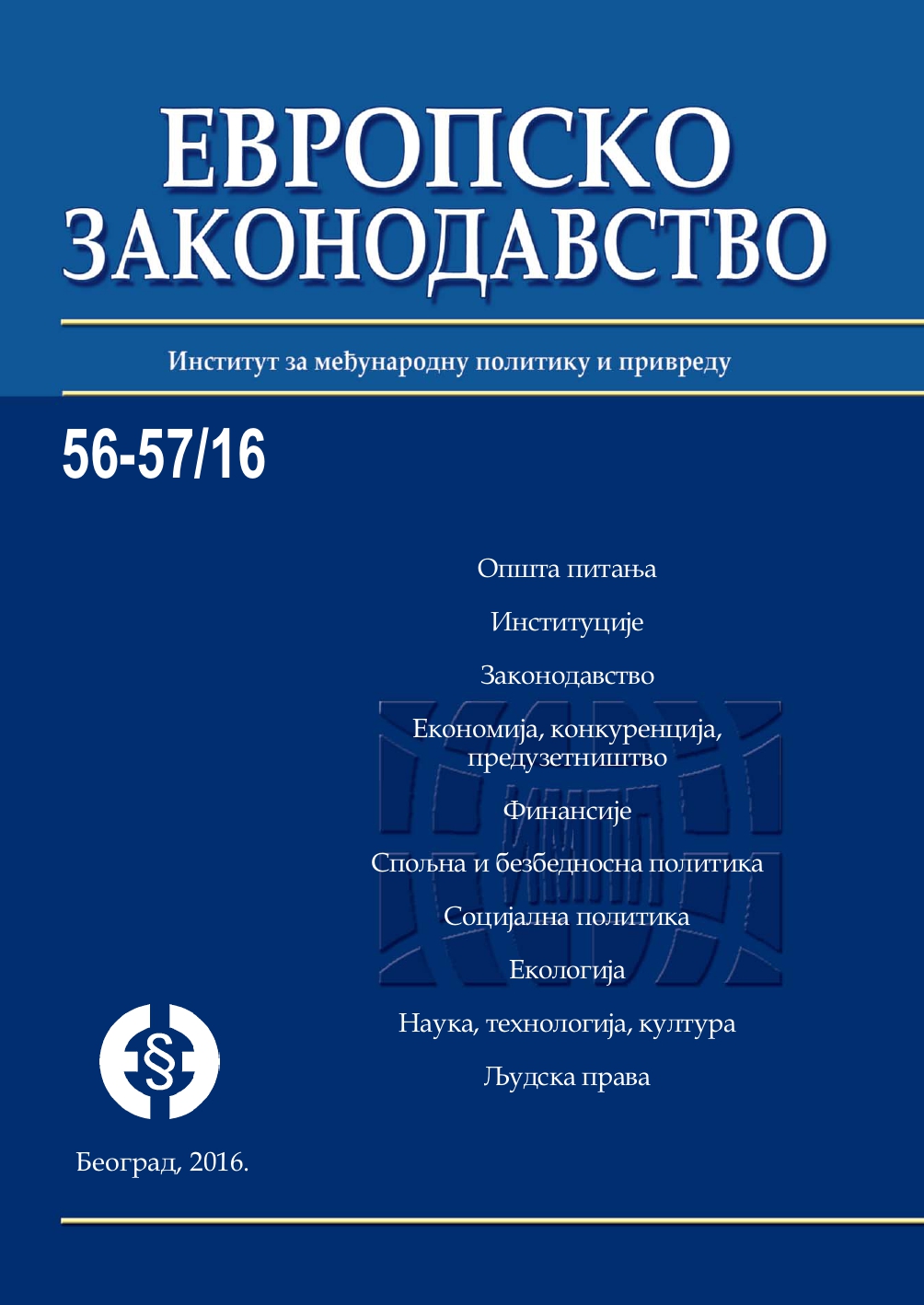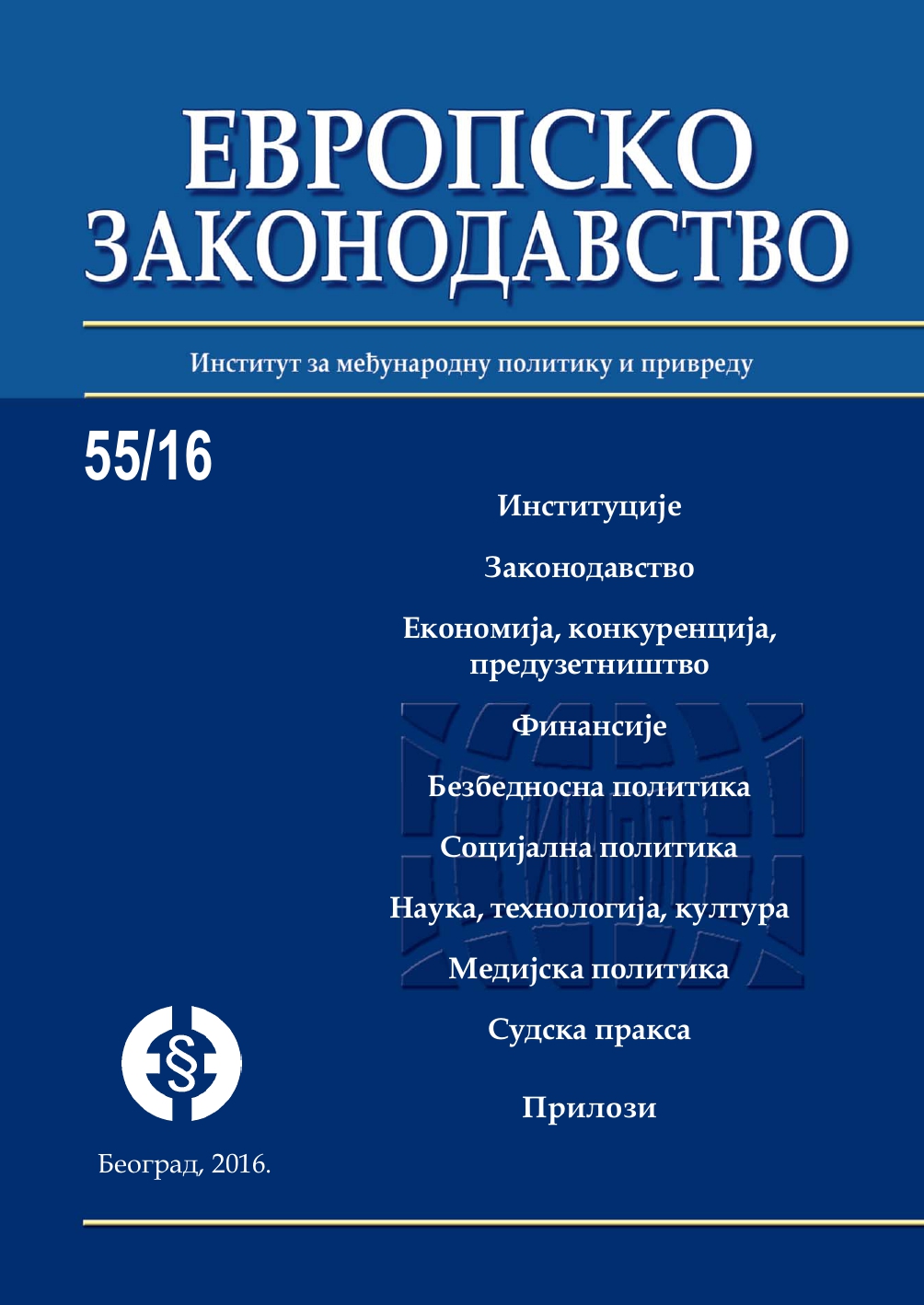Author(s): Dobrica Vesić / Language(s): Serbian
Issue: 55/2016
In Serbia, the development of the securities market over the last century and a half (with a half a century standstill during the social ownership) has gained in intensity at the end of the eighties. This has led to the institutional shaping of this important sphere of the market economy. This applies to the securities market with its participants, issuers, investors, professional intermediaries. Good corporate governance is an essential prerequisite for attracting and retaining the funds necessary for restructuring, privatization, long-term investments and creates the necessary conditions for the development of business environment. Efficient and consistent regulation of financial markets should ensure the achievement of three main objectives for the successful functioning of the financial markets: the protection of investors, ensuring fair, efficient and transparent markets and reduce systemic risk. The new Law on Securities Market should point the way division of competence between the institutions - the avoidance of conflicts of jurisdiction. Additionally included in the following chapters: Proxy Statement, abuse of privileged information, offers presentation of joint stock companies, affiliated entities, new entrants in the financial market, capital adequacy and calculating capital adequacy, financial statements and audit reports, authorized banks, custody bank, Central securities depository, investment advisers and portfolio managers, the status of the Securities Commission - legal guarantees of autonomy and independence, composition and working principle of the Securities Commission, the procedure to protect the interests of investors, establishing criteria for imposing fines and their amount. A section refers to the role of commercial banks in the securities market. Commercial banks may, as well as other economic entities, to invest funds in securities and other financial instruments.
More...


